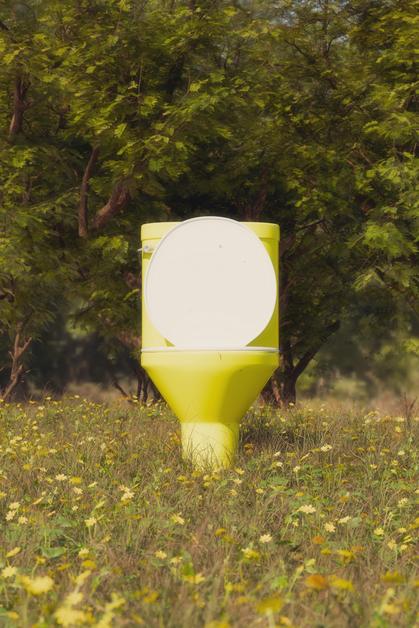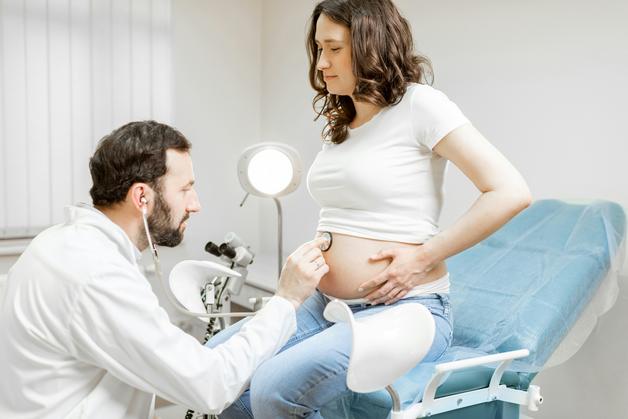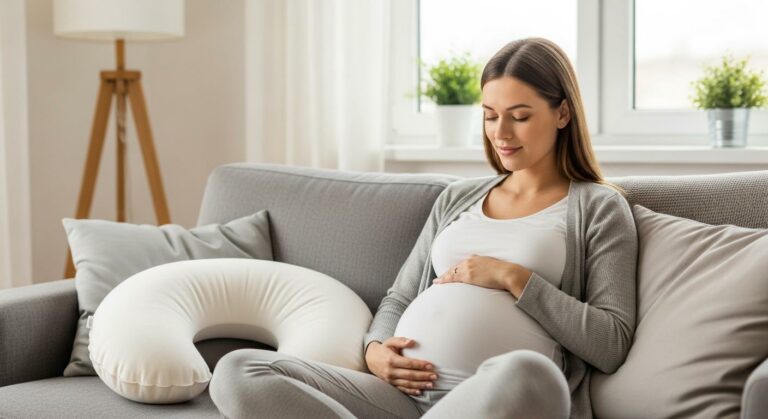Bladders under siege—how unexpected and persistent they can be during pregnancy. “Why am I going to the bathroom again?” echoes in your mind while juggling morning routines or settling into bed just moments before another trip. Frequent urination pregnancy isn’t simply an odd quirk; it disrupts routines, disturbs sleep, and, at times, raises worries about what is truly normal. Parents often wonder: Is this endless dance to the toilet inevitable? Could it spell trouble for my pregnancy? Can I outsmart the urgency and snatch back some peace? Here you’ll find the medical explanations behind the relentless urge, advice to sift through what matters, and science-backed tips that respect your individual journey while supporting your well-being—and your baby’s development.
Understanding frequent urination pregnancy: what’s typical and what to expect
Frequent urination pregnancy describes not just needing the toilet more often, but sometimes dealing with urgent, powerful needs—often for disappointingly small amounts. While non-pregnant adults generally urinate between 4 and 10 times per day (most commonly 6 to 7), for pregnant individuals, the scale tips above 7 daily visits. This change, supported by clinical studies, is remarkably common, affecting up to 95% of expectant mothers due to a whirlwind of hormonal surges, circulatory shifts, and anatomical transformations.
Curious about the timeline? The frequency tends to surface astonishingly early—sometimes within the first two or three weeks post-conception, often sneaking in before any physical signs of pregnancy declare themselves. Across the three trimesters, the intensity and pattern wax and wane:
- The first trimester bombards the body with hormones and swelling in the uterus, shrinking autonomy between bathroom breaks—sometimes down to mere minutes.
- The second trimester grants a temporary reprieve; the uterus rises and relieves direct bladder pressure, letting nights stretch out a bit longer and days take on a gentler pace.
- Enter the third trimester: as the baby settles deeper into the pelvis, renewed pressure brings back urgency and frequency, sometimes with only drops to show for it.
The physiological machinery behind frequent urination pregnancy
Hormones rewriting the rules: hCG and progesterone
Pregnancy, in essence, reprograms the entire system. Surge levels of human chorionic gonadotropin (hCG) trigger increased blood flow to the pelvic organs and kidneys, “waking up” the bladder nerves sooner and sending signals to void even before the bladder reaches its usual threshold. Meanwhile, progesterone—the celebrated pregnancy hormone—relaxes smooth muscle fibers throughout the body, including those forming the bladder wall and pelvic floor. This cocktail means the urge is not only more frequent but can sneak up suddenly, and even a laugh or cough may result in stress incontinence (a technical term for unintentional urine leakage).
Blood volume, kidney prowess, and uterus expansion
Here’s a striking fact: kidneys work overtime in pregnancy, as blood volume increases by around 30%. These hard-working organs handle all this extra fluid, churning out more urine, which rapidly fills the bladder. The growing uterus, particularly as it stretches and shifts position, physically crowds the bladder—sometimes reducing its usual capacity by half. No wonder, then, that you find yourself living life on the edge of the next bathroom dash.
Pelvic floor, neural pathways, and bladder control
Under the influence of high progesterone, pelvic floor muscles lose a degree of tone, becoming stretchier and less able to counter sudden bladder contractions. Gentle pelvic floor muscle training (popularly known as Kegels) can bolster control, reduce leaks, and improve your experience—not to mention aid labor and postpartum recovery. Caution: don’t ignore your body’s urge to go. Prolonged urine retention can compromise bladder health and elevate infection risk.
Baby’s changing position and the domino effect
As delivery approaches, the baby’s head may descend and apply substantial pressure directly onto the bladder. The result? Renewed urgency and some of the most intense episodes of frequent urination pregnancy—a natural, if challenging, physiological crescendo.
Beyond the usual: urinary tract infections and gestational diabetes
Pregnancy isn’t immune to complications. Hormonal changes and anatomical shifts make women more susceptible to urinary tract infections (UTIs), which can masquerade as ordinary frequency but pose risks if undetected. Gestational diabetes, with excess glucose spilling into the urine, can further ramp up production and frequency. Any deviation involving pain, burning, or other warning signs (see below) deserves swift professional attention.
Disrupted routines, emotional toll, and night awakenings
Impact on sleep, energy, and stamina
Frequent urination pregnancy takes a tangible toll—especially at night. Nocturia, the medical term for frequent nighttime urination, steals restorative sleep. The combination of hormonal changes and fluid shifts during rest results in two or more nocturnal awakenings for many pregnant individuals. Over time, chronic sleep disruption leads to daytime tiredness and an added layer of fatigue.
The psychological side: anxiety, embarrassment, and reassurance
Navigating frequent urination pregnancy can spark anxiety or self-consciousness, especially when accidents threaten public spaces or cherished sleep. These emotional responses are entirely valid. Open dialogue with a trusted healthcare provider, solid understanding of physiological changes, and adaptation strategies all foster confidence and provide comfort throughout the process.
Hydration, nutrition, and practical strategies for comfort
Water wisdom: how and when to hydrate
Don’t be tempted to slash fluid intake (unless medically directed). Sufficient hydration—aim for 1.5 to 2 liters daily (around 8–12 cups)—supports kidney function and guards against infections. The secret is in the timing: distribute fluids throughout the day, but scale back slightly in the evening to promote uninterrupted sleep. Pale yellow urine acts as a useful signal for balanced hydration.
Steering clear of irritants and dietary tweaks
Caffeine is a known diuretic—increasing urine output and potentially worsening frequency. Limiting coffee, tea, and caffeinated sodas often pays dividends. Spicy or acidic foods can also irritate the bladder in susceptible individuals. Embrace a fiber-rich menu: vegetables, fruits, and whole grains ensure healthy bowel transit, reducing pelvic pressure and optimizing bladder comfort. Some advocate for alkaline foods for an improved internal environment, though this remains a complementary—not primary—approach.
Hygiene and daily routines for everyday ease
A handful of pragmatic tactics can transform the everyday experience with frequent urination pregnancy:
- Scout public restrooms in advance when planning outings.
- Opt for comfortable, loose-fitting clothing and breathable cotton underwear to minimize pressure and irritation.
- Use unscented, absorbent liners (if needed) for added reassurance, especially during the third trimester.
- Achieve optimal bladder emptying with the “lean forward” toilet technique, reducing retained urine and lowering infection risk.
- Some find it helpful to keep a bladder diary—tracking patterns and potential triggers to foster greater awareness and management.
Pelvic floor mastery: movement, habits, and prevention
Kegel exercises are the foundation. Contract the pelvic floor muscles (as if stopping urine midstream), hold for 5 to 10 seconds, then relax. Ten repetitions, three times daily build tone and fortify bladder control. Maintain solid posture during toilet visits—lean forward, relax, don’t rush. And avoid holding urine for extended intervals: regular, responsive trips train healthy bladder patterns, not strained retention.
Postpartum, those same pelvic floor routines play a pivotal role in restoring function and minimizing future urinary concerns.
Intimate hygiene, infection prevention, and self-care
- Always wipe front to back to shield the urinary tract from bacterial transfer.
- Urinating after sexual activity flushes out potential pathogens, lowering UTI risk.
- Stick strictly to unscented, gentle soaps; avoid douching and perfumed wipes, which disturb the beneficial flora.
- Loose cotton underwear and clothing maximize airflow, limit moisture, and reduce skin irritations.
Warning signs and when to seek professional guidance
Frequent urination pregnancy is a typical, expected process—unless it’s accompanied by burning, pain, urine with an odd color or unpleasant odor, fever, chills, lower abdominal or back pain, or a marked feeling of malaise. Some urinary tract infections remain silent, and routine tests are a safety net during prenatal care. Any of these signals warrant quick contact with a healthcare provider.
Preventive action and responsive care
Protect against UTIs by maintaining meticulous hygiene, optimal fluid balance, and prompt urination when the urge arises. Monitor your overall comfort—if frequency suddenly intensifies, is paired with pain, strange urine color, repeated contractions, or disrupts daily life, medical evaluation is always the wise move. Individual risk factors and medical history can guide more tailored monitoring and assessments.
Special scenarios: IVF, fertility treatments, and early symptoms
For those pursuing IVF or fertility protocols, frequent urination pregnancy may kick in earlier and with greater intensity. This is linked to robust hormonal stimulation and rapid uterine changes. Any brisk change in urinary comfort or urinary patterns soon after treatment should be brought up with your clinical team for individualized guidance.
Life after birth: what’s next for your bladder?
Postpartum adjustments and recovery
Fortunately, for most, frequent urination pregnancy fades within days as the body sheds surplus fluids. By about six weeks postpartum, almost all have returned to their original urinary pattern, though a minority may experience persistence beyond this window—especially if episodes of incontinence appeared during pregnancy.
Aiding pelvic resilience
Early resumption of pelvic floor exercises, once cleared by your obstetrician, accelerates healing, rebuilds muscle strength, and restores bladder function.
Post-birth red flags
Should you notice ongoing pain, burning, blood in urine, fever, unpleasant odors, or pronounced leakage affecting your daily life after birth, a prompt consultation with a professional is important. Persistent issues beyond six weeks, or the sudden emergence of concerning symptoms, also deserve thorough investigation.
Key takeaways
- Frequent urination pregnancy is extraordinarily common, typically reflecting the complex interplay of hormones, blood flow, and uterine expansion—each shaping the bladder’s behavior in distinct phases.
- Stay adequately hydrated, favor gentle intimate hygiene, and incorporate pelvic floor exercises to support comfort and resilience.
- Remain vigilant for symptoms that suggest possible infection—pain, burning, blood, foul odor, or fever all warrant medical input.
- Dietary attention, especially high fiber intake, can promote gastrointestinal regularity and take pressure off the bladder.
- Whenever doubts arise—especially following fertility treatments—professional reassurance and assessment are always within reach.
- Bladder disruptions mostly recede after birth, but consistent support, proactive self-care, and accessible medical expertise ensure you’re never left wondering.
The journey through frequent urination pregnancy invites both patience and proactive care. With the right strategies, you can maintain comfort, champion your health, and foster your baby’s needs—even as you master those frequent bathroom trips. For further guidance, personalized advice, and free health questionnaires designed for parents, you can download the Heloa app—a resource designed to walk beside families with evidence-based support.
Questions Parents Ask
Can frequent urination in pregnancy cause dehydration?
Frequent urination in pregnancy rarely leads to dehydration, as this increase in trips to the bathroom is a natural response to hormonal changes and the growing uterus. Still, it’s important to keep an eye on hydration. If you notice dark urine or feel unusually thirsty or tired, these could be signs that you’re not drinking enough water. Try to sip water throughout the day, and trust your body’s signals—your well-being, and that of your baby, depends on balanced hydration.
Is it possible for frequent urination to be an early sign of pregnancy before a missed period?
Yes, some parents notice they need to urinate more often even before missing a period. Hormonal changes can start affecting your bladder very early, sometimes just days after conception. If you feel this symptom along with other early pregnancy signs like fatigue or breast tenderness, it may be worth taking a pregnancy test or discussing with your healthcare provider. Remember, each body reacts a bit differently, and only a test can confirm pregnancy.
Can holding urine for too long be harmful during pregnancy?
Trying to hold your urine for extended periods isn’t recommended during pregnancy. Doing so can increase the risk of urinary tract infections, which are more common while expecting and can sometimes cause discomfort or even complications. Whenever you feel the urge, it’s best to go to the bathroom—this simple habit supports your bladder health and overall comfort. If you ever feel pain when urinating or notice unusual symptoms, don’t hesitate to reach out to a healthcare professional.









